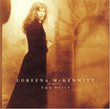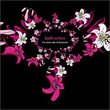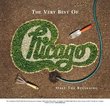| All Artists: Nico Title: End Members Wishing: 9 Total Copies: 0 Label: Universal I.S. Original Release Date: 1/1/1974 Re-Release Date: 3/1/1994 Album Type: Import Genres: Alternative Rock, Pop, Rock Styles: Hardcore & Punk, Progressive, Progressive Rock Number of Discs: 1 SwapaCD Credits: 1 UPCs: 731451889226, 0731451889226, 0602517677333, 738476654822 |
Search - Nico :: End
 | Nico End Genres: Alternative Rock, Pop, Rock
|
Larger Image |
CD DetailsSimilarly Requested CDs
|
CD ReviewsMania Della Notte J. E. Barnes | Bayridge, Brooklyn, New York | 06/08/2000 (5 out of 5 stars) "Like the Old Testament monster Leviathan, forced out of the Garden of Eden and into the wilderness after the Fall, there was only one Nico. I submit that Nico, in her middle and late periods, is a figure so unprecedented and strange that a full theory of her work is presently impossible. The End--a series of six original compositions, a brazen cover of Morrison's `The End' and one of 'Das Lied Der Deutschen' is a product of Nico's late middle period. Using techniques she learned from Ornette Coleman and a lyrical style adapted from the Imagist poets, The End presents the rudiments of existence boiled down to a harsh, bare essence. Its vision is one where loss, hunt and capture, submission and domination, blood sacrifice, and imprisonment are the norm; every person has a dark, unknowable heart and a hidden agenda; every moment is desperate. Time and Nature, laughing off in the distance like subtle thunder, are co-conspirators in keeping all in a state of forcible isolation and instability. Nico, writing from a state of seeming undifferentiated consciousness, wrote primarily about liminal states, thus earlier album title Desertshore; tides and shorelines are again motifs on The End. Shaman-like, she dropped into the archetypal world of the unconscious, a world that had perhaps always rested comfortably behind her antisocially hip posture during the Warhol period. Certainly Nico expressed the pure, twilit, archaic language of the dream world better than almost anyone had before or has since. Numerous stories abound about Nico, who freely admitted that she lied about herself whenever the spirit moved her. Or perhaps that was a lie---what the facts are is anyone's guess. One often-repeated story is that she was raped in her youth by an American GI, which accounts for many of the motifs underlying The End: 'The Secret Side' presents a barbaric rape scenario that revives the earlier desert/shore motif, with its images of arriving ships 'awaiting reverence' and 'unwed virgins tied up on the sand.' But the berserker does not appear until 'Innocent & Vain,' where he seems a welcome sight: 'The battered bracelets do not fit/my favorite gladiator.' In the same song, she calls herself a 'savage violator.' This contradiction, and the rape motif, makes clear why she choose to cover `The End,' the Doors' incestuous Oedipal rock opera, which makes little sense if sung as written by a woman. Nico changes the song's brutal climax from an implied killing of the father and rape of the mother to an implied killing of the father and probable--from the sound of things--murder of the mother. The song is no longer a chaotic and surreal Freudian bedroom romp but a chaotic and surreal Freudian bedroom romp transferred to one of Poe's moldering castle dungeons, the walls closing in. Morrison, killing his father and raping his mother, takes control of and carries on the family line; Nico, killing both parents, ends it. Thus the album's title and dominant theme. The moment-to-moment changes of identity are also reflected in 'It Has Not Taken Long,' the album's powerful first song. In the presented tableau, 'the hungry beast,' stalked by a zealous hunter, is apparently fatally trapped in an 'open glade'; but in the batting on an eye, there is a swift reversal: the beast rises up to its true size, and it is the hunter that horribly cries 'help me please' as the beast descends, singing, 'it has not taken long.' Critics have identified her work as "glacial," but Nico, a dying hermaphroditic Romantic hero (in later life, she commented: "I wish I had been born a boy.") whose death, a kind of life-in-death that went on for fifteen years, was anything but. 'The high tide has taken everything,' she sings on album highlight 'You Forget To Answer,' a song composed for 'beautiful friend' Morrison. Love is possible in this sun-baked, tidal-pool landscape, but since genuine communication is not, any love felt must remain unreciprocated, internalized, and, if expressed, unheard. 'I have come to lie with you/I have come to die with you,' she declared in the later `Genghis Khan,' encapsulating all of the Romantic poets and Denis De Rougemont in two succinct lines. Sadomasochism, leading to perdition, is all. Nico was like a Greek oracle, both voice and vehicle of the gods. Paradoxically, she was also a supplicating pilgrim, "baffled in the wind and blast," seeking succor, supremely the voice crying out in the wilderness. 'The secrets that I do not know/I cannot understand them,' she sings with backward logic in 'Innocent & Vain.' The theme of incomplete knowledge is repeated in the next song, 'The Valley of The Kings': 'The testament lies hidden from me/underneath my sins.' Uncomprehending Nico, who raises ambivalence to a high art, asks, 'Can I betray my fate?' Like Alice, she has lost the key and cannot find her way through or out of the maze, which is a metaphor for life and exitable only by death. Perfectly produced by John Cale, this is the work in which Nico's metaphysical vision blooms most cohesively. Nico, who called herself "an international pagan," and "an anarchist, a nihilist, to be exact," had previously been written off as untalented or a mere reflection of the famous men who promoted her. Introverted Nico, an Amazonian Alice, nonplused and wide-eyed in the wonderland of the Psychedelic Sixties, had been perceived as a beautiful tabula rasa face surrendering an occasional pop song. But by 1969 she was working within a set of visionary traditions stemming as far back as Blake, coming through to the Pre-Raphaelite Brotherhood and fin de siecle Decadent artists into the 20th century, and manifesting internationally in writers and artists as diverse as Jung, Kafka, Genet, Ernst, Anna Kavan, Jean Rhys, H. D. and David Lynch.Musically, The End is Dark Ages; Nico's vision, pre-Renaissance. Today, we have few figures approaching Nico's stature. At the time The End was produced, giants walked the earth. This album is one of that period's most beautiful, tainted flowers." Disquieting...Atmospheric...Haunting...Perfect Philippe Landry | Louisiana | 08/12/2002 (5 out of 5 stars) "(Disclaimer: This review may sound gothically cliched, but it's the honest to Goth truth! Just buy it and listen!)Nico's The End was way way way WAAAAAY ahead of it's time. It sounds much like Coil's collection of "seasonally adjusted" EP's or Musick To Play In The Dark Vol's 1 & 2. John Cale's avante gardist approach to production and Brian Eno's very spooky modular synth treatments make for a very suggestive atmosphere. "You Forgot To Answer" sounds like a cold and dark autumn night complete with dead spirits howling into oblivion(synthetiques thanks to Eno) and a very gothic piano composition; it is quite creepy and melancholic with Nico mourning into the darkness. I want to say more about this track, like how it completely conveys despair and smoldering horror, but I can't say it how I want to...so just listen to it."Innocent & Vein" is disturbingly noisey: Eno tweaks the modulars into a banshee-like screech which then turns into the sound of batwings fluttering into the night. In this track Nico seems like she has finally become the "Death Angel" that many have called her, being at the front of a brooding mass of black, humming demons(the synths)."It Has Not Taken Long" has a wonderful chorus of back-up voices providing what sounds like a chilling Christmas carol or pagan chant.Nico's voice, subject matter and arrangements exist perfectly within this nocturnal and just opressively ominous collection of songs. She writes and composes in a very hypnotic way; two notes at the most, fluctuating back and forth to create a very dreamy and druggy texture. To sum it up(and keep me from writing and ranting endlessly about this beautiful album), this is gothic incantation and invocation personified. Pete Murphy and a dozen vampires couldn't come close to this. There is no pretense here...Nico is real!" More dangerous visions... Gregor von Kallahann | 05/10/2000 (4 out of 5 stars) "Nico's fourth album found her on her fourth label, which says what? That she was too difficult, too uncommercial, too visionary for record companies to market? Or that she was too ornery, naive or lazy to market herself effectively--if at all. As a fan, I like to think the former, but I suspect that the latter traits also contributed at least somewhat to her lack of success. But the times seem to have caught up with Nico to some degree. You see more favorable critical commentary about her now than you ever did when she was alive. Younger people now seem more aware of her music and influence than my generation was twenty-five years ago. Her fourth solo effort may well be the best introduction for the uninitiated. Each song is more haunting than the last. The lyrics are cryptic and often quite jarring ("It has not taken long...to feast our naked eyes upon/ the open plain, the hungry beast). Occasionally, the lyrics take an awkward turn, but as her arranger, John Cale, points out in his recent book, the quality of her writing is astonishing when you consider that English was not her first language. Cale's production is as bold as ever. I consider his work with Nico to be among his best. He was able to give shape and color to her visions. This album is alternately spare ("We've Got the Gold") and lush ("It Has Not Taken Long"). Throughout, it is somber, reflective and profoundly disturbing. It's noteworthy for its Gothic treatment of the Doors "The End" and for its somber, ironic take on "Das Lied der Deutschen" (aka "Deutschland Ueber Alles") but ultimately, her own compositions are the core here. They are haunting, literally unlike anything else you've ever heard."
|

 Track Listings (8) - Disc #1
Track Listings (8) - Disc #1
![The Doors - Greatest Hits [Elektra]](https://nationalbookswap.com/cd//m/90/2090/252090.jpg)







